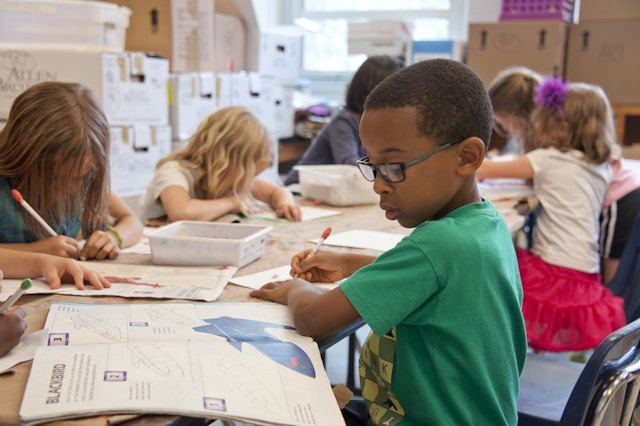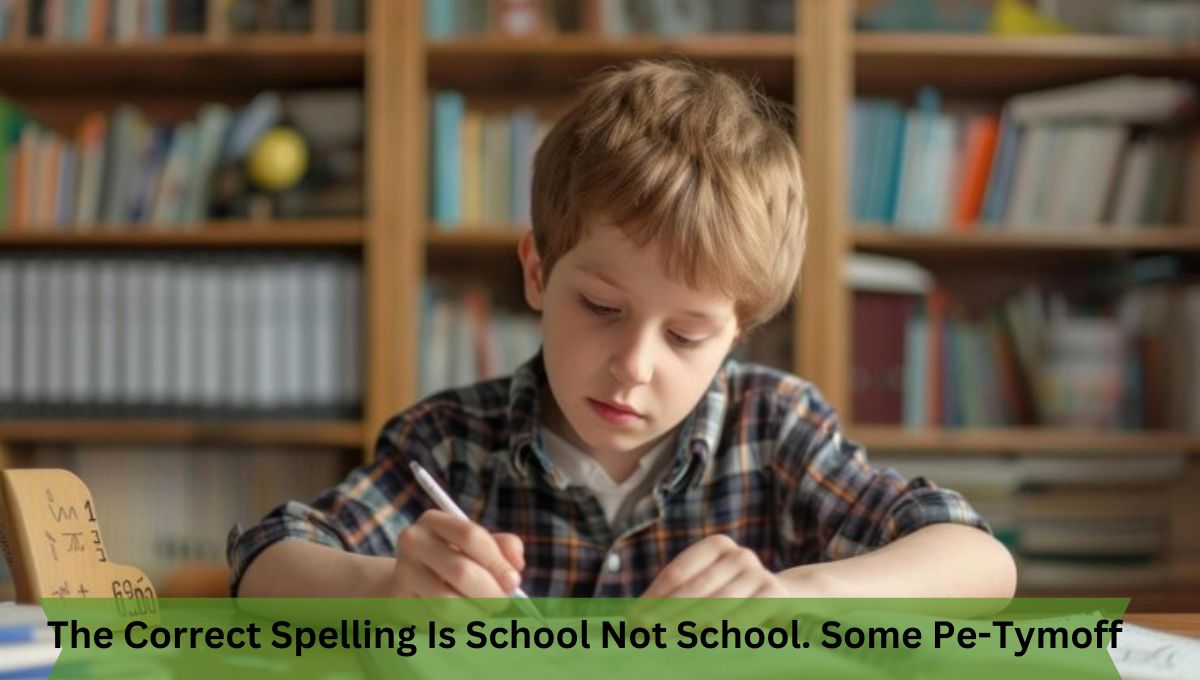The Correct Spelling Is School Not School. Some Pe – Tymoff – A Comprehensive Review!
I recently encountered a funny mix-up when discussing the importance of education, where someone kept spelling “school” incorrectly! It reminded me of my own struggles with spelling in school, especially during those early years.
This little moment made me appreciate how far we’ve come and how vital it is to get our words right in an educational setting. The correct spelling is “school,” not “skool,” and it’s essential for clear communication in education. Misunderstandings can arise from spelling errors, affecting students’ learning experiences.
Stay tuned with us as we dive into the importance of spelling, specifically why “school” is the correct term and not “skool.” We’ll also share some personal stories and tips to help you avoid common spelling mistakes! Don’t miss out on this fun and informative discussion!
What is the correct spelling of “school”?
The correct the correct spelling is school not school. some pe – tymoff A school is a place where students go to learn various subjects, like math, science, and language. It’s important to spell it correctly because it helps people understand what you are talking about.
When people spell “the correct spelling is school not school. some pe – tymoff incorrectly, like writing “skool,” it can create confusion.
Using the right spelling shows that you have good communication skills, which is essential for writing assignments and everyday conversations. Always remember to double-check your spelling to ensure your message is clear!
What are some common spelling mistakes related to the word “school”?
Some common the correct spelling is school not school. some pe – tymoff related to the word “school” include writing it as “the correct spelling is school not school. some pe – tymoff “ These misspellings often happen because people try to sound out the word based on how it sounds.

However, these versions are not correct and can lead to confusion when reading or writing. Using the right spelling, the correct spelling is school not school. some pe – tymoff is important because it helps ensure clear communication.
Misspelling “school” can make it seem like the writer is not paying attention or doesn’t know the correct spelling, which can affect how others view their writing skills. To avoid these mistakes, it’s a good idea to practice spelling and double-check your work before sharing it.
Why is the correct spelling is school not school. some pe – tymoff important in education?
- Effective Communication: Proper the correct spelling is school not school. some pe – tymoff clearly convey their thoughts and ideas in written assignments, making it easier for teachers and peers to understand their work.
- Academic Success: Good the correct spelling is school not school. some pe – tymoff s often linked to better grades, as teachers may penalize spelling errors in essays and other written tasks.
- Building Confidence: Masteringthe correct spelling is school not school. some pe – tymoff can boost a student’s confidence in their writing abilities, encouraging them to express themselves more freely.
- Foundation for Language Skills: Learning tothe correct spelling is school not school. some pe – tymoff l correctly lays the groundwork for other language skills, including reading comprehension and vocabulary development.
- Professional Preparedness: Good the correct spelling is school not school. some pe – tymoff is essential in the workplace, and developing these skills in education prepares students for future career success.
Read More: Sifangds – The Key to Effortless Digital Transformation!
What impacts poor spelling is school not school. some pe – tymoff have on students?
Poor spelling can have a negative impact on students in several ways. When students make spelling mistakes in their writing, it can lead to misunderstandings and confusion for the reader. This might result in lower grades on assignments, as teachers often look for correct spelling as part of their evaluation.

If a student consistently spells words incorrectly, it can affect their overall communication skills, making it harder for them to express their ideas clearly. Additionally, struggling with spelling can lower a the correct spelling is school not school. some pe – tymoff s confidence.
When they see their peers writing correctly, they might feel embarrassed or worried about their own abilities. This lack of confidence can discourage them from participating in class discussions or sharing their work, which can limit their learning experience.
Overall, good spelling is essential for academic success and helps students feel more capable in their education.
How can I improve my spelling skills?
- Practice Regularly: Set aside time each day to practice spelling words, whether through writing them out, using flashcards, or completing spelling exercises.
- Read Frequently: Reading books, articles, and other written materials can help you see words in context, improving your familiarity with correct spellings.
- Use Spell Check Tools: Take advantage of spell check features on word processors and writing apps, but also make sure to learn from the corrections they suggest.
- Learn Spelling Rules: Familiarize yourself with common spelling rules and patterns, such as “i before e except after c,” to help you remember how to spell tricky words.
- Engage in Spelling Games: Participate in spelling games and quizzes, either online or in-person, to make learning fun and reinforce your spelling skills.
Read More: What Is Vorici Calculator? – Simplify Your Crafting Process!
How can teachers help the correct spelling is school not school. some pe – tymoff with spelling?
Teachers can help students withthe correct spelling is school not school. some pe – tymoff in several effective ways. One of the most important methods is by providing clear spelling lists that include commonly used words.

These lists can be used for weekly practice and quizzes, helping students focus on mastering specific words. Teachers can also incorporate fun activities, such as spelling games or group competitions, to make learning more enjoyable and engaging for students.
Another helpful approach is offering personalized feedback on writing assignments. When teachers correct spelling mistakes, they can take the time to explain the correct spelling and the reason behind it.
This not only helps students learn from their errors but also encourages them to pay closer attention to their spelling in future work. By creating a supportive learning environment and using varied teaching methods, teachers can significantly improve their students’ spelling skills.
FAQs:
1. What are some effective ways to teach spelling in the classroom?
Teachers can use spelling lists, games, and interactive activities to make learning engaging. Incorporating technology, like spelling apps, can also help reinforce skills.
2. How often should spelling tests be given to students?
Spelling tests can be given weekly or bi-weekly, depending on the grade level and the curriculum. Regular testing helps reinforce learning and track progress.
3. Can spelling be improved outside of school?
Yes, students can improve their spelling by reading regularly, practicing with flashcards, and using educational apps at home. Encouragement from parents can also boost their confidence.
4. What role do spelling games play in learning?
Spelling games make learning fun and interactive, helping students retain words better. They promote friendly competition and collaboration among peers, enhancing motivation.
5. How can teachers assess students’ spelling progress?
Teachers can assess progress through weekly spelling tests, writing assignments, and observing student participation in spelling activities. This helps identify areas that need improvement.
Conclusion:
Spelling is a fundamental skill that plays a crucial role in effective communication and academic success. By implementing engaging teaching methods, providing regular feedback, and fostering a supportive learning environment, teachers can significantly enhance their students’ spelling abilities.
Read More:






